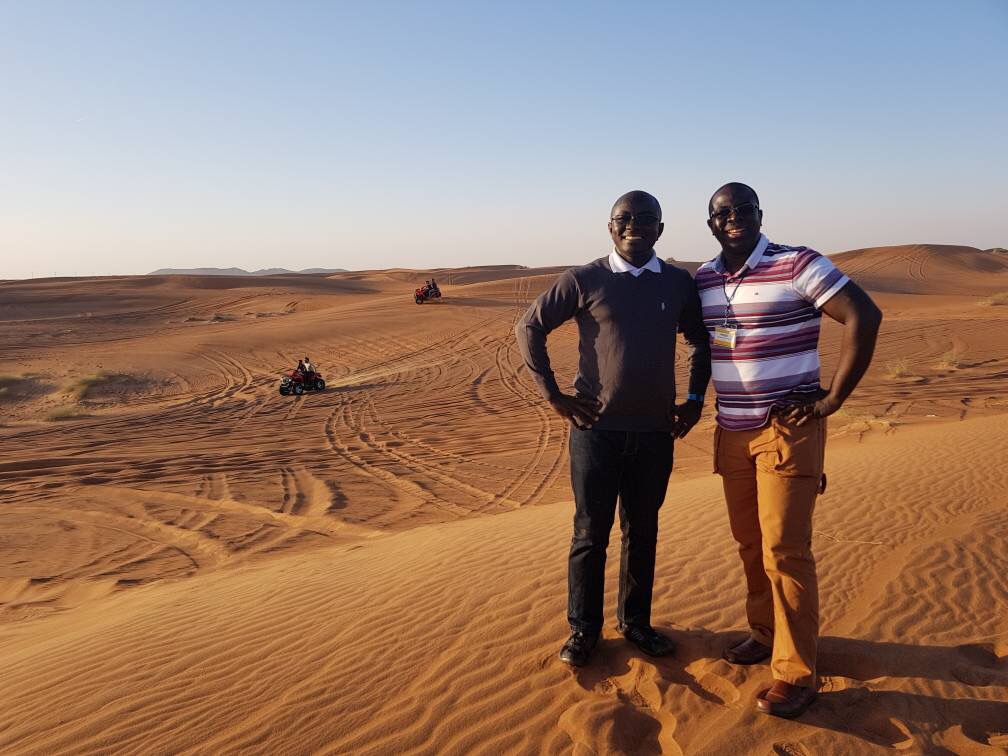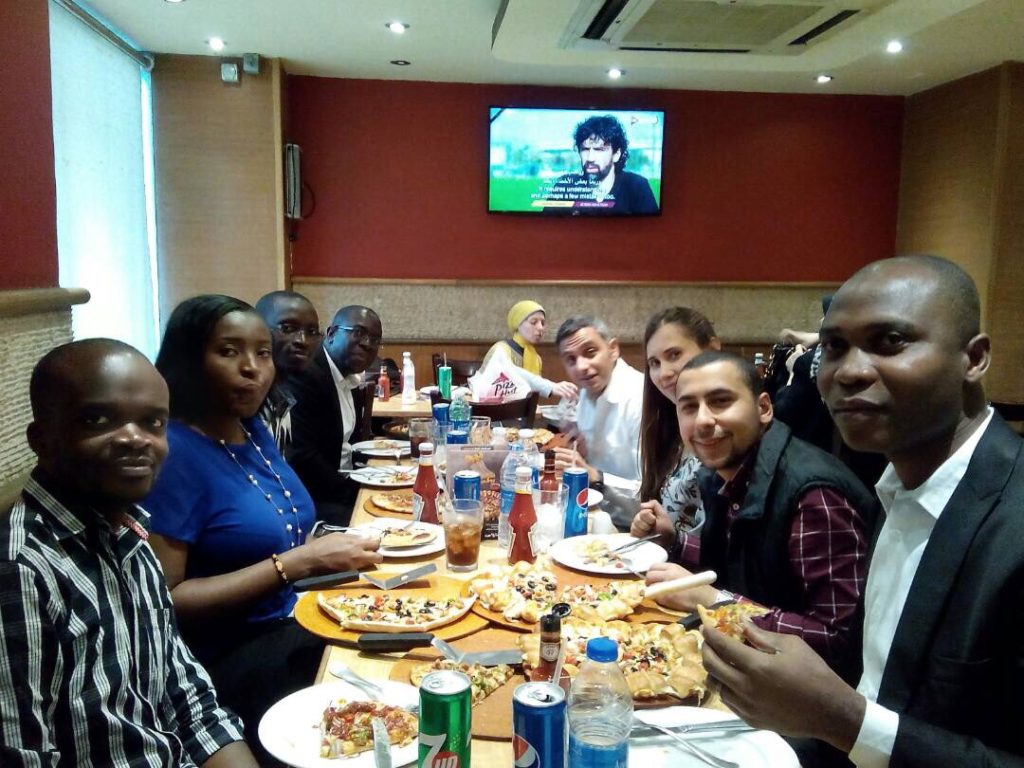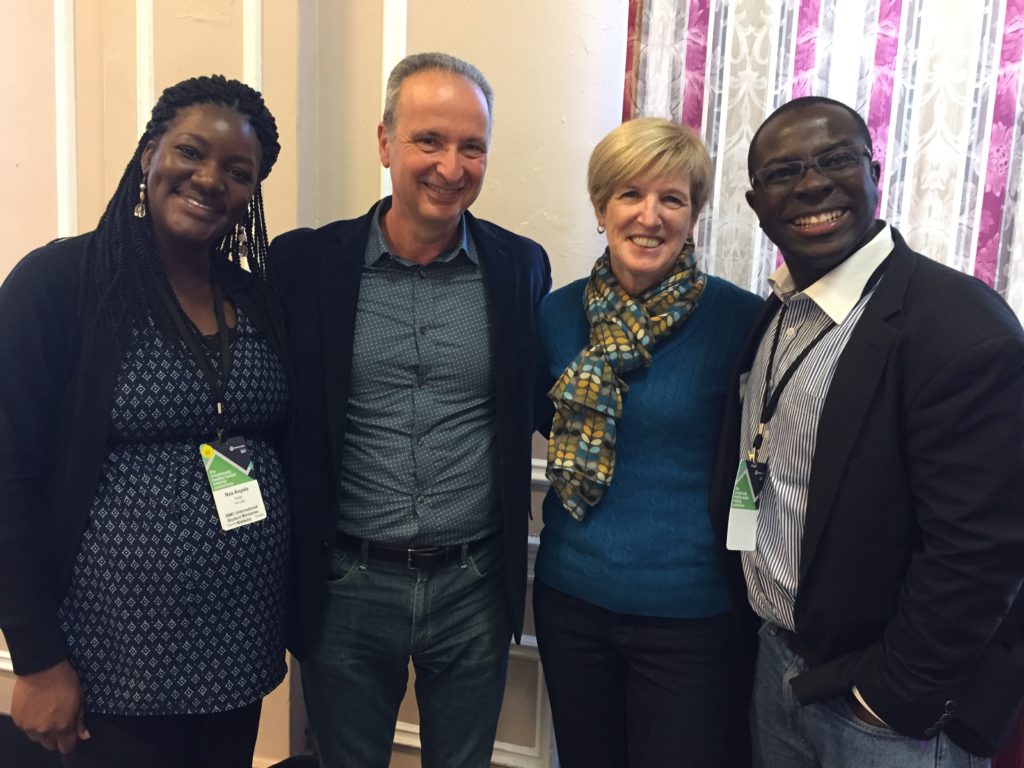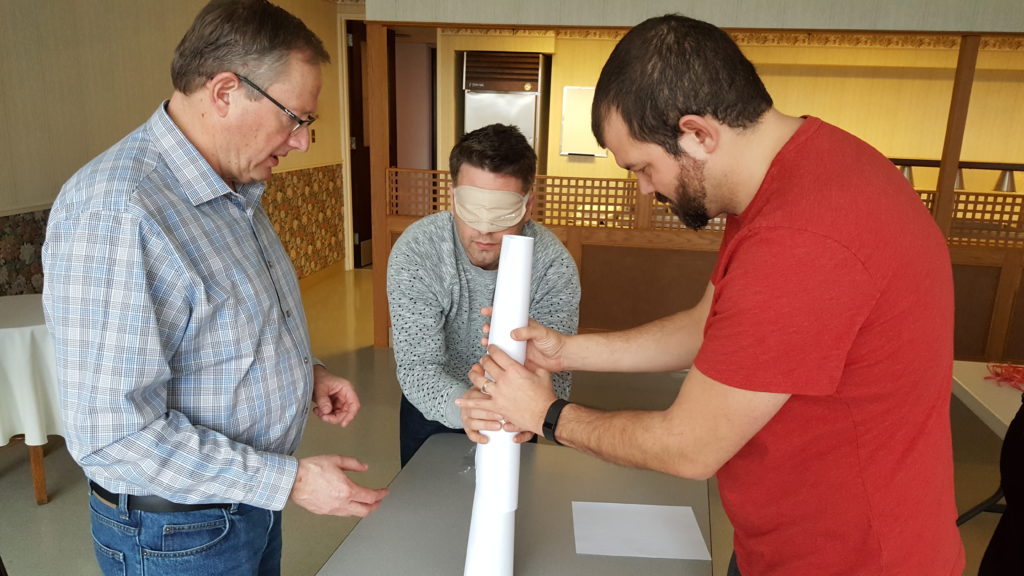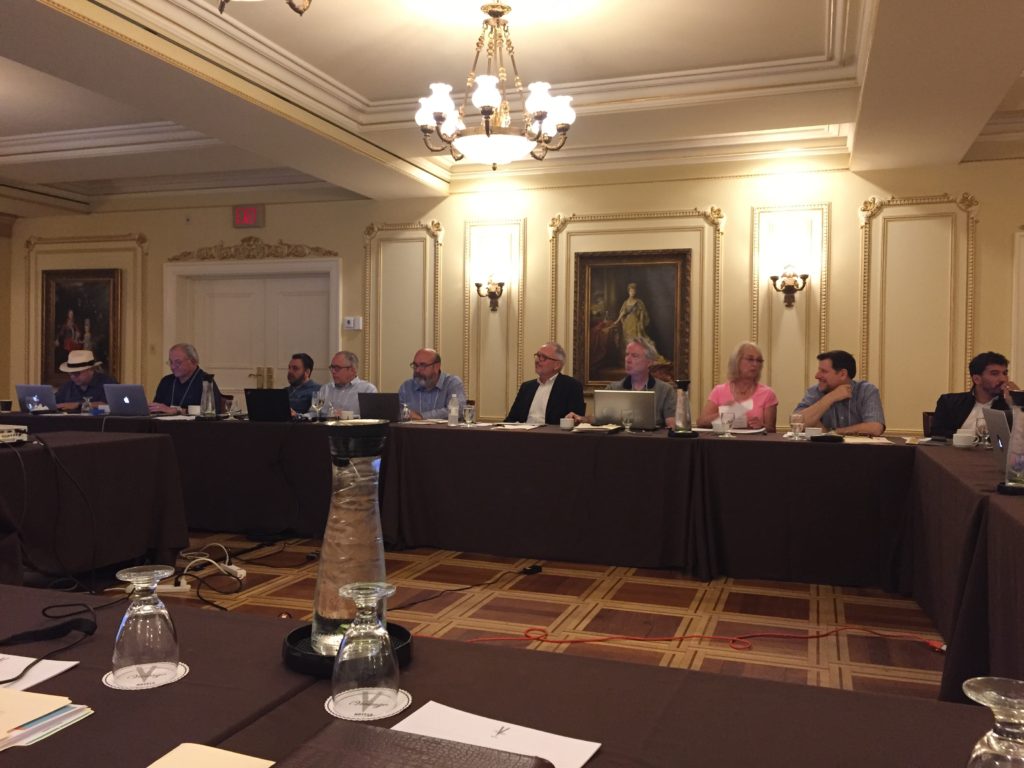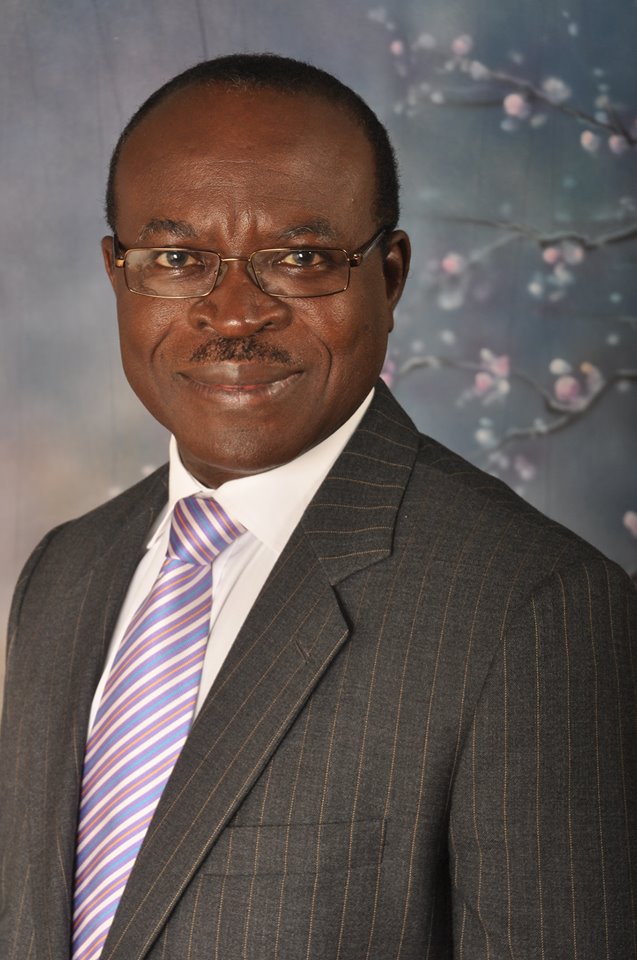NATIONAL CATHEDRAL: Vulgar or Virtuous Venture?
My Unwholly Holy Initial Thoughts, Honest-to-God
‘To build or not to build?’ is more often than not a rather profound, mind-wracking, heart-churning, soul-searching question, be it for a young couple or a growing congregation, a thriving corporation or even an emerging country!
My initial reaction to the notion of building a national cathedral in Accra, Ghana was not that of excitement and welcome. No. It was a rolling of the eyes, a cynical “yeah right! another opportunity for sleek politicians to line their pockets with 10% kickbacks and oil their party’s campaign wheels.” The other thought was, “Really? In a country that is struggling to procure beds for the sick and school buildings for the young or even prevent needless deaths every year from perennial floods? Can this be a priority with our degree of poverty?”
Apart from the economic prudence and social justice angles, from a purely missiological lens I shuddered we may be treading the undesirable path of so-called ‘post-Christian’ Europe, ending up 100 years from now with beautiful but empty cathedrals only good for tourism or sale to condo developers, effigies of a dying spirituality.
Oh yeah, and there is the splendid basilica in Yamoussoukro next door, Notre Dame de la Paix, which I got to visit a couple of times during my one-year sojourn in Cote d’Ivoire as a United Nations peacekeeper. The grandeur of the edifice from afar and the sense of awe it evokes in the soul upon standing on those holy grounds left me schizophrenic how a nation with such a holy habitation would be at war or why this multi-million dollar erection is queerly perched in the middle of poverty and even backwardness. Apparently the papacy—John Paul II was the pope at the time—before agreeing to the 1990 commissioning of this expensive edifice in the midst of pauperism insisted that he would do this only on condition that a hospital be built in the vicinity of the cathedral (sort of to ease his conscience, I guess). As far as I know, then-president Félix Houphouët-Boigny acquiesced and that hospital was commissioned at that time but is still yet to be built, 28 years later!
That being said, my willingness to travel all the way from Montreal to Accra, at my own expense, to be part of a discourse organized by the National Cathedral Secretariat proved to me that my mind wasn’t completely closed to the idea. After taking pains to learn a wee bit more about the proposed project and spending some time last weekend in the United States with a former national head of a historical and significant Ghanaian church denomination, I am now almost won over. May I share why? (these are not his thoughts but mine)
1. More Than a Building
Part of my unease about hardware with no software, the case of Western civilization’s empty cathedrals but denying the power thereof, has been eased with the knowledge that this venture is a two-edged sword of both Cathedral-as-Infrastructure and Cathedral-as-Convenor. Those who say faith should have no place in the public space are ill-informed at best and naïve at worst. This is true and matters even in the West where the so-called post-Christian era has brought in its wake such a keen thrust towards secularism let alone in Africa where religion is life and life is religion, period. You can find loads of books and scholarly articles written about how culture and religion are inseparable in the African paradigm. The Cathedral seeks to facilitate conversations and critical public debates. There is one in the works, which I plan to attend, that has even garnered international interest. We have a lot to talk about, with so much faith and so little integrity, or so many churches but so much filth and poverty in Ghana. Then to act.
In this vein, I congratulate the National Cathedral Secretariat for not falling prey to what Jim Collins calls, “‘the tyranny of the ‘or’” but fully riding on the wave of “the genius of the ‘and.’” Not Cathedral-as-Infrastructure or Cathedral-as-Convenor but both/and. For my worry that we may be building concrete structures rather than investing in the actual making disciples of Jesus Christ, I say to myself, it isn’t either/or; it can, and indeed should, be both/and. For Christians who say our body is the temple of God so we need no other such national cathedral, may I again submit, it’s not either/or but both/and.
2. Just the Land
One of the most important things I have learnt about this project is that the government is only providing the land. None of the money for the proposed cathedral will be taxpayers’ money. The Christians who believe this will be honouring to their God are expected to put their money where their mouth is. That eases my concerns a bit, as a sort of secular state (that’s a fallacy; plus we should perhaps revise our stance on annually facilitating pilgrimages to Mecca on taxpayers’ money).
There are enough Christians and more than enough Christian cash to put up this building. Between a mere two denominations, say the Church of Pentecost (have you seen their conference centre at Kasoa?) and Lighthouse Chapel alone (go and see their Anakazo edifice in my hometown, Mampong-Akuapem), this is easy-peasy.It will be great to see the unity of the body of Christ in Ghana around this one national vision and mission.
As a budding missiologist, such a monument of the Christian faith is of much interest to me as a symbol of Christianity on a continent which only 100 years ago was considered ‘savage,’ ‘dark’, ‘primitive’ and ‘heathen.’ This year, 2018, is the first time in the history of the world, actually, that Africa has been billed as the continent with the most Christians in the world! Perhaps a national cathedral in Ghana, a major player in quantity and quality of Christianity on the continent, may be a worthy monument to mark this new era, to the glory of the God of Africa too.
3. Priorities and Prime Time
It seems like the only good time to build a national cathedral is after there is no poor person in Ghana, a perfect doctor-patient ratio, Malaria has been eradicated, everyone has a job or is in school… in other words after all our problems are solved. In that case, there will never be a good time to build a national cathedral then; not even a house of parliament or a national sports stadium.
The people of Israel, in the prophet Haggai’s day, kept saying “The time has not yet come to rebuild the Lord’s house.” God was upset and queried: “Why are you living in luxurious houses while my house lies in ruins?” In this case, there isn’t even a national cathedral yet, in the first place, but many of us have two, three or more real estate properties. Now, this is what the LORD Almighty’s exhortation: “Give careful thought to your ways.”
This issue can really be a chicken-or-egg-which-comes-first one. Do we prosper first and then honour God with a national cathedral or do we honour God with one first and prosperity ensues. In the context of Haggai, God has no doubt which comes first: “You expected much, but see, it turned out to be little. What you brought home, I blew away. Why?” declares the Lord Almighty. “Because of my house, which remains a ruin, while each of you is busy with your own house.”I will suggest you read the whole chapter here.
We may be saying that when all is well with us we will build a national cathedral for God’s glory; he might be saying, until you build me a national cathedral for my pleasure, honour and glory nil will be well with you.
4. Poverty as an Excuse
Smack in line with the above argument against the national cathedral is the argument about poverty in Ghana. Poverty around is not an excuse for not giving God our best. That is the whole concept of the widow’s mite. That being said, we must put on record that nobody has done more work in alleviating poverty, building hospitals and schools like the Church (Body of Christ) in Ghana. The Church has done enough for society to be worthy of a single ecumenical cathedral at her own cost! Aaba! Even then, this is not just a monument but a practical, functioning construction for the use of the State!
It will be interesting to research how much the Church has contributed against how much even government itself has done in bringing dignity to the lives of Ghanaians. If I may be permitted to be so crass I would dare say that perhaps the Church deserves a national cathedral even more than the government deserves a Jubilee House! Can the Church in Ghana do more? Sure! But even then the Body of Christ in this country has already done more than enough to bless Ghanaians of faith or no faith with education and healthcare, peace and prosperity, civics and commerce, ideas and industry, to deserve one national, non-denominational, inter-denominational edifice to the glory of this God of theirs!
Read some history! It is because of the Church that our local languages like Twi and Ga are written today. The first seeds of cocoa, Ghana’s export lifeline, were brought into the country by the Church; not Tetteh-Quarshie. Even our very independence from colonial masters was to a significant degree catalyzed by the work of the Church. The erudite Kwame Bediako asserts that “a number of educated Christians who had a clear self-consciousness as Africans and Christians and who were alive to their intellectual responsibility to their society” was “as a result of the impact of missionary Christianity on our people.”*
There was poverty in Ghana when we built Parliament House and the National Theatre and the Accra International Conference Centre and Jubilee House. “The poor you will always have with you.” We will come back to who said that and in what context shortly. That is not to say we be cursory or even fatalistic about poverty in our developing country and not do much about it; what is meant is that if we’re going to use poverty in society as a barometer, we will never build anything celebratory or symbolic except hospitals, schools, roads, prisons and such.
5. When Extravagant Worship is OK
Also related to the above is the fact that many shouting, “this is extravagant, oh so unnecessary when we have the poor,” actually don’t care a hoot about the poor! Ghana’s woes stem from that same educated middle and upper class. They remind me of Jesus’ treasurer, Judas.
If anybody loved and cared for the widow, orphan and poor it was Jesus. Yet on this one occasion when a woman with a past decided to pour her expensive jar of perfume on Jesus, he did not stop her. Everyone else thought this was a waste or rather extravagant at best (it was worth a whole year’s salary!) but Jesus thought it was the coolest thing ever—whole-hearted worship, giving God one’s very best.
The ‘everyone’ included Judas Iscariot, who was audacious enough to open his big mouth to say this perfume could’ve been sold and the proceeds given to the poor. He said that because he was a thief and wanted to help himself to additional cash in the kitty, yes, but more importantly Jesus made it clear that there is a place for pure-motived, no holds barred, deep-felt extravagant worship even in the midst of poverty. It was in that context that Jesus shockingly revealed that “the poor you will always have with you.” After investing the equivalent of all the cathedral project money into poverty alleviation programmes as church and government have done for decades, we shall still have poor people in our midst.
6. In the Hearts of Kings
Leaders like to build—figuratively and literally, people and things, systems and structures. I have heard “The king’s heart is like a stream of water directed by the LORD; he guides it wherever he pleases” quoted in untoward circumstances when Christ followers want to see a heart-change of sorts of someone in power regarding some policy and such. But if the Christian God does direct the hearts of leaders of nations, could it be that it is he who has put this desire in the heart of the Ghanaian president? That desire to build for God was put in world leaders like Darius, Cyrus, Nehemiah, Solomon… dare I say Houphouët-Boigny? Could it be that this desire has been implanted into the heart of Ghana’s President by God himself?
7. Might Not Be the One or the Time
Inasmuch as I just spoke to the notion that a leader’s desire to do something great for God is a fact of life and of history it isn’t always acceptable to God because it might not be for them in particular to do and/or the timing may not be right in God’s scheme of things.
The great Jewish king David loved God and once said to himself, “Here I am, living in a house of cedar, while the ark of God remains in a tent.” A prophet called Nathan replied to the king, “Whatever you have in mind, go ahead and do it, for the Lord is with you.” That night, the LORD appears to Nathan and asks him to go back to David and disappoint him. Fascinating! Check out the full story here.
A national cathedral for Ghana may be a good thing, but depending on whether it is God’s will, especially vis-à-vis his timing, it may not be a pleasing and perfect thing in his sight. David rescinded; but provided all the resources for the one appointed and anointed to build that national cathedral to do so at the future perfect time—his heir and son, Solomon.
A Holier Conclusion
For Christians, the question to ask is if such a national cathedral in Ghana will bring glory to God at this time, be a blessing to people at all times and in any way deal another punch to evil to make the righteousness, love, joy, peace, and power of God’s kingdom more established on earth as it is for all time and all eternity in heaven. Will other nations travel from near and far to come and see this edifice and leave breathless in wonder—like the Queen of Sheba when he visited Solomon and his national citadel—that the God of Ghana is great and most greatly to be praised? At the same time, will the beauty and glory of our everyday lives (not just when we’re suited up for church but at Makola and the government ministries) match the magnificence of this national cathedral? As for where to site it as well as the maintenance culture and costs, that is another conversation.
Personally, I would like to give this national cathedral a chance. I am very close to echoing the response of city officials to Nehemiah’s national building proposal, “The God of heaven, he will prosper us; therefore we his servants will arise and build.”
*Bediako, Kwame. 2014. Christianity in Africa: The renewal of a Non-Western Religion. Akropong-Akuapem. Regnum Africa.
A Painful Thought
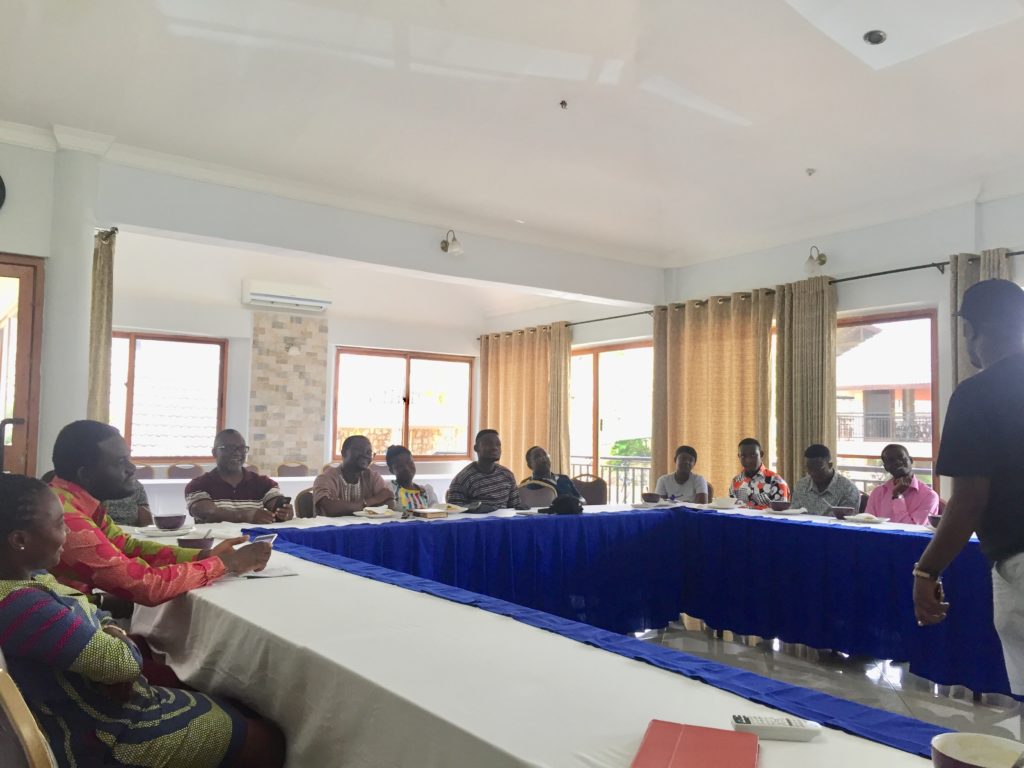
Andragogy (adult learning) and Pedagogy (teaching children) are miles apart
When I attended the University of Ghana Medical School (UGMS) I always thought the posture of most of my lecturers and professors was not only authoritative but even rather condescending. Now I know why. We were not exactly ‘kids;’ in fact, some of us were even married and such, and yet one of Knowles’ six core adult learning principles (Knowles 2015, 6)—prior experience of the learner—was being violated again and again.
Contrary to Lindeman’s foundation that “the resource of highest value in adult education is the learner’s experience” and that “experience is the adult learner’s living textbook” (20) we were rather treated as neophytes with not only nothing in our heads but nothing in our hands to offer either. I have been wondering whether any of the designers of our curriculum knew, considering their ‘sage on stage’ approach and ultimate ‘punishment’ of examinations that “authoritative teaching, examinations which preclude original thinking, rigid pedagogical formulae—all these have no place in adult education” (20).
Considering how deeply wounded my medical education experience has left me, and now understanding why from the principle of “prior experience of the learner” being violated, I resolve never to treat any adult learner the way I felt mistreated in my future design of educational programmes.
Taking the advice of Lindeman, this principle implies that in programme and/or lesson design “none but the humble become good teachers of adults” (21). It is a beautiful thing to see the experience of the adult learner esteemed so highly, even at par with the teacher’s knowledge! “In an adult class the student’s experience counts for as much as the teacher’s knowledge. Both are exchangeable at par. Indeed, in some of the best adult classes it is sometimes difficult to discover who is learning most, the teacher or the students” (21-22). Wow!
Reference
Knowles, Malcolm, et al. 2015. The Adult Learner: The Definitive Classic in Adult Education and Human Resource Development. San Francisco: Jossey-Bass.
Caught in a Cross-Fire of Love
I seldom share my personal written prayers in public. But as the LORD mercifully answers this one may it be your reality too.
Dear Love,
So where did I get the idea that I am somehow an originator of love when you are not only the pioneer, picture and perfector of love, you are Love itself; or rather should I say, Himself?
Today, I am happy to be caught in the cross-fire of the “love that flows between the Father and Son, enfolded in [your love], sharing [your] passionate love for the world” (Seamands 2005, 53). As I read about Jack frost (53-56) I wondered if the author had heard about me and retold my personal story with that pseudonym. You know I am a recovering workaholic, performance-driven, results-oriented, doing-more-than-being hard taskmaster, but you have been transforming me by the renewing of my mind since I began Fuller over a year ago. Thank you.
And now if indeed Jesus is sending me as you sent him (John 20:21), o then may I feel afresh “the profound awareness of the Father’s affectionate love [as] the foundation of [my] ministry” too (63). May my sending (achievement) be out of a sense of being (acceptance), well-being (sustenance) and being-ness (status) (63-64).
O how I often slip away from this foundation and time and again become a ‘loving worker’ instead of a ‘working lover’ (65). May I truly profoundly and experientially know your heart for me before having your heart for the nations (66-67).
What a stark reminder, dear Lover and Lord, that who I am is more important than what I do not just because the latter flows from the former but that my identity as a son is proto, prime and permanent. If even I did nothing, I will always still be your beloved son in whom you are well-pleased. Profound. Wow!
May you remove every known and unknown barrier to your love for me, may I feel your passionate phileo and even eros love for me—not just agape. I want to feel the fire of your love afresh in my soul.
So! back to the beginning. I am happy to be caught in the cross-fire of that divine love which “is a burning fire; in all its intensity and infinity…has but one object and but one joy, and that is the only-begotten Son” (72).
Thank you for including me in “the circle of that fiery love” (73). May I always be content to stay there—to just be.
Your co-lover and co-loved,
Yaw
Work cited
Seamands, Stephen. 2005. Ministry in the Image of God: The Trinitarian Shape of Christian Service. Downers Grove, IL: InterVarsity Press.
You don’t know You if you don’t know God—and vice versa.
With all due respect, we are fooling ourselves if we think we can know ourselves without knowing God or know God without knowing ourselves. You can’t have one without the other. Here’s why.
“MAN, KNOW THYSELF”
We shall not even begin to delve into the convoluted Egyptian and Greek history that tries to explain the origins of the poignant phrase, “know thyself.” Suffice it to say that in leader development, many practitioners like me are in a hurry to get to exciting things like vision and mission and to teach skills like communication, team-building etc. but when we skip the essential task of helping people to first discover more of themselves, pay attention to themselves, there is imminent danger on an already treacherous leadership journey. “Man, know thyself,” said Socrates and apparently many other ancient Greek sages.
There are many reasons why self-awareness is important, like discovering the strengths and weaknesses of one’s personality (DISC, Enneagram or Myers Briggs as examples), uncovering how one’s ancestry affects their present attitudes, emotions and actions (using a genogram, for example), unveiling blind spots, discovering one’s giftedness (eg. using a StrengthsFinder assessment), exploring one’s cultural values (basic values survey) etc.
All that being said, it may astound you how knowing ourselves and knowing God are inextricably linked.
SIAMESE TWINS
I don’t know if using conjoint twins is the best analogy for illustrating this but Scripture, church history, current research and umpteen experiential anecdotes have proven beyond doubt that “a heart to know God more intimately requires an openness to discover oneself more truthfully” (Reese 2012, 57) and vice versa; also, that “true knowledge in the life of faith is always a “double knowledge.” We cannot know ourselves without knowing God or know God without knowing ourselves.
ANCIENT WORDS
Just check out what a few significant voices from the past have said about this double knowledge for nearly 2,000 years:
- Augustine (354-430): “Grant, Lord that I may know myself that I may know thee.”
- Bernard of Clairvaux (1090-1153): “Know yourself and you will have a wholesome fear of God. Know God and you will also love God. You must avoid both types of ignorance, because without fear and love, salvation is not possible. Without knowledge of self, we have no knowledge of God.”
- Julian of Norwich (c. 1342-c. 1416): “For our soul is so deeply grounded in God and so endlessly treasured that we cannot come to knowledge of it, until we first have knowledge of God, who is the Creator to whom it is united. …And all of this notwithstanding, we can never come to the full knowledge of God until we first clearly know our own soul.”
- Thomas à Kempis (c. 1380-1471): “a humble self-knowledge is a surer way to God than a search after deep learning.”
- John Calvin (1509-1564): “Our wisdom, in so far as it ought to be deemed true and solid wisdom, consists almost entirely of two parts: the knowledge of God and the knowledge of ourselves… The knowledge of God and the knowledge of ourselves are bound together by a mutual tie.”
- Blaise Pascal (1623-1622): “To know God and yet know nothing of our own wretched state breeds pride; to realize our misery and know nothing of God is mere despair; but if we come to the knowledge of Jesus Christ we find our true equilibrium, for there we find both human misery and God.”
PAY DOUBLE
No wonder the apostle Paul said to his mentee “pay close attention to yourself.” Of late I have staged a ‘rebellion’ against corporate leadership and the self-help/motivational industry because of the wanton decoupling of ‘religious life’ from reality. My frustration with church leadership also is when “these answers we know from Scripture” and “the questions we have in our life” are not really matching up well (Reese 2012, 60) and all this theology doesn’t seem to go anywhere or land in reality.
The most liberating thing for me in the final chapter of David G. Benner’s The Gift of Being Yourself is that “genuine Christ-following will always make us more, not less, human” (88). And I adore the Lord Jesus Christ for showing me the way: “By becoming fully human, Jesus leads us to the fulfillment of our humanity. By being fully God, he leads us to God” (88). Hallelujah!
As Benner puts it, “The anthropological question (Who am I?) and the theological question (Who is God?) are fundamentally inseparable” (83). I have become very, very, very, very wary of a multi-billion dollar self-help/motivational industry that has no place for God. Very. Or a musty theology that is not grounded in the reality of being human. Double knowledge, my friends. We’ve got to pay attention, twice.
Works Cited
Reese, Randy D., and Robert Loane. 2012. Deep Mentoring: Guiding Others on Their Leadership Journey. Downers Grove, IL: InterVarsity Press.
Benner David G. 2015. The Gift of Being Yourself. Downers Grove, IL: InterVarsity Press.
A Daniel Dare for the New Year
With another new year comes another fresh challenge of fasting and prayer for 21 days—just like Daniel did.
HARD TO BEAT
Make no mistake. Every excuse you may have not to fast and pray, Daniel had same and more. He was super smart, highly intellectual and well-trained—from Alchemy to Zoology (Daniel 1). He aced the national test to serve the king.
He was super gifted with insight to interpret dreams, mysteries and hard puzzles that baffled the most sophisticated magicians, enchanters, astrologers and diviners of his time—in fact, he was once appointed chief of them all in King Nebuchadnezzar’s era (Daniel 5).
Daniel was super busy—he was one of three senior ministers overseeing 120 regional ministers of the Babylonian kingdom—he wasn’t slack. Indeed, Daniel so distinguished himself among the ministers and senior ministers by his exceptional qualities that the king planned to set him over the entire kingdom as prime minister (Daniel 6).
He was super principled and ethical—his diet, motives, honesty, disciplines, integrity, convictions… He was a man of noble character. He served several successive kings—he outlasted them—even as an immigrant in high political office.
Super young, super good-looking, super liked and all the above, he still found the need to fast for 21 days, seeking understanding of an issue that he wanted to unravel. At that time I, Daniel, mourned for three weeks. I ate no choice food; no meat or wine touched my lips; and I used no lotions at all until the three weeks were over. (Daniel 10:2-3)
If you are satisfied with being super by earthly standards, then by all means forget about the pain of fasting and the work of prayer. But if you want to see the supernatural intervening in your earthly matters, then welcome to the school of fasting and prayer.
DO THE MATH
Every new year is a mystery, like Daniel’s, waiting to be unravelled. To take 21 days seeking audience with the Author, Executor and Perfector of all the 365 days laden with prospects and dangers is only a 6% investment of your year but worth 100% of the effort.
Since 2007 a number of us have done this math and figured an exciting time of seeking the Lord in 21 Fasting Days of Prayer, Purpose and Planning at the start of each year is so worth it. See my blog last year for some of the most important reasons why I personally do this year after year for over 10 years now!
Please plan to join us as we seek the Lord in fasting and prayer from January 2nd to 22nd. We will plan to meet together daily for corporate prayer times in person or via video call (Zoom) from 5 pm to 6 pm local time (wherever you are in the world) and 5pm to 6pm ET in North America in particular. You will find the meeting link and schedule of daily prayer topics below.
CHOOSE YOUR FAST
In fasting, we commit to denying ourselves of food, drink or other comforts to more fully focus on prayer and fellowship with God. There are many types of fasts. There are complete fasts where you deny yourself all food or partial fasts where you forego certain types of food. Food is anything with calories 🙂 so does not include water (which has zero calories). It is actually a healthy practice to keep hydrated since the body is 60% water. A dry fast (no water) isn’t recommended beyond three days. Usually, when people set out to fast for an extended time—like the 21 days in the Daniel Fast—they will choose to do a partial fast.
The Daniel diet during this fast (like he did) is mainly vegetables and denying yourself meat, drinks and other choice foods. Basically, nothing fancy. Some still have three meals a day but nothing fancy (as described above) while others go the whole day denying themselves breakfast and lunch and eating only in the evenings.
Here are three suggestions of different partial fasts you could choose this January:
1) Full day fast Type 1: Fast from breakfast and lunch and eat a normal supper in the evening for the 21 days.
2) Full day fast Type 2: Fast from breakfast and lunch and eat a Daniel fast supper in the evening for the 21 days.
3) Fast Type 3: Eat three Daniel Fast meals each day for 21 days.
Please prayerfully consider joining us for this exciting 21 fasting days of Prayer, Purpose and Planning for 2018!
LAND THE DEAL
“Do not be afraid…Since the first day that you set your mind to gain understanding and to humble yourself before your God, your words were heard, and I have come in response to them. But the prince of the Persian kingdom resisted me twenty-one days…Now I have come to explain to you what will happen to your people in the future, for the vision concerns a time yet to come.” (Daniel 10:12-14)
It is the same dude, Daniel, who was unequivocal in stating, “…the people who do know their God shall be strong, and do exploits” (Daniel 11:32b). Now you know. HAPPY NEW YEAR!
TECHNICAL INFO
Schedule: January 2-22 daily topics here
Zoom Link: Join from PC, Mac, Linux, iOS or Android
Or Telephone: US: +1 646 876 9923 or +1 669 900 6833 (Meeting ID: 248 246 747)
International numbers available: https://zoom.us/zoomconference?m=BWpwOmbBqIO9McEisO8aYDJSSz5Wzav_
CONFESSIONS OF THE CALLED (#5): Convocation at the Table of Vocation
To be a stable entity one needs to get rid of a one-track mind that calling is just one thing and embrace at least four kinds of vocations, just like the legs of a four-legged table.
It was not until my university days that I clearly heard and understood that I had a unique and specific God-given calling in this life. The excitement of that threw me into an extreme mode where I sought that one and only specific vocation my Creator had for my life. If you’ve been following this Confessions of the Called series, you will know that a lot of my one-track perspective has changed. I now see at least four kinds of callings each of us have, and like the legs of a four-legged table, you just might topple without any of the legs:
1. Human calling.
Our first call is to be human beings (Benner 2015, 87). Personally, I find that I have been so much in a hurry to live out the next call below, the Christian call, that many times I have neither accepted my own humanity let alone that of another. I’m often in a hurry to deal with myself and people as Christian/non-Christian than first of all, as simply human. This is where you can love someone, even an enemy, simply because they too are human—made in God’s image.
2. Primary/General calling.
You may call this the Christian calling. This is basically the primary vocation of having been called by God himself in love to love God and love our neighbour as Christ-followers. The first few blogs in this ‘Confessions of the Called’ series have all been about how foundational and essential this is, before we attempt our secondary call.
3. Secondary/Specific calling.
Based on how God has uniquely wired us with gifts, passions, capacities, experiences, circumstances etc. we can discern through observation, prayer and counsel what specific vocation we may have, since no one else on the planet has our unique fingerprint.
Let me say here, another confession, that unlike the one-track-purpose-for-life that I used to think everyone had, there may be some of us who are called to a patchwork of callings. Perhaps no one captures it better than this English professor at Calvin College, Debra Rienstra (2005, 221-22):
“Some people’s passions are obvious, and God leads them through those passions into a single path of service. Mother Teresa, for example, or the lifelong kindergarten teacher, or the musician who offers his skillful playing every day for God’s glory and other people’s joy. Others, like me, have less obvious passions: what gives the energy develops over time or remains partially hidden or blooms suddenly in response to new situations. As a result such people offer an assortment of odds and ends as service: a regular job done with integrity, some volunteer work, a career decision that seeks service over money and prestige, kindness to neighbors, maybe a late-life passion for going on mission trips or teaching teenagers appliance repair. Their lives may not have the clean simplicity of vocation, but at the center of everything they do is a deep love for God—and that is everyone’s true vocation.
“I’ve learned that God treasures the lives made of a single piece of cloth, cut in the shape of service. But God also values the lives that look more like a bag of fabric scraps, some big pieces, some tiny pieces, different colors and weaves. At each stage in my life, with each piece of it, I try to ask God, “How can I offer this to you?” I have to trust that if I offer all the odds and ends of my life, God will stitch together the pieces in some lovely pattern and receive it as my gift.”
4. Immediate calling
This last one I gleaned from Gordon T. Smith’s Courage and Calling: Embracing Your God-given Potential. It brought such a sense of peace to me as I tend to be very futuristic and ‘big dreamy’ in my approach to life thus find little, urgent things like changing a diaper or taking my wife grocery shopping quite interrupting and irritating. Immediate calling means God invites us to be responsible with the present demands and tasks of our lives (Smith 1999, 10).
“And we know that God causes everything to work together for the good of those who love God and are called according to his purpose for them”—human, primary, specific, immediate callings. So come to the table just as you are, right where you are, right now. Relax. God’s got this.
Works Cited
Benner, David G. 2015. The Gift of Being Yourself: The Sacred Call to Self-Discovery. Downer’s Grove, IL: InterVarsity Press.
Rienstra, Debra. 2005. So Much More: An Invitation to Christian Spirituality. San Francisco, CA: Jossey-Bass.
Smith, Gordon T. 1999. Courage and Calling: Embracing Your God-Given Potential. Downer’s Grove, IL: InterVarsity Press.
What’s in a name?
Sometimes one can’t help but wonder whether names of people in history were given to them after they lived the way they did (to capture the essence of their lives) or really before. Naming is important; names are prophetic.
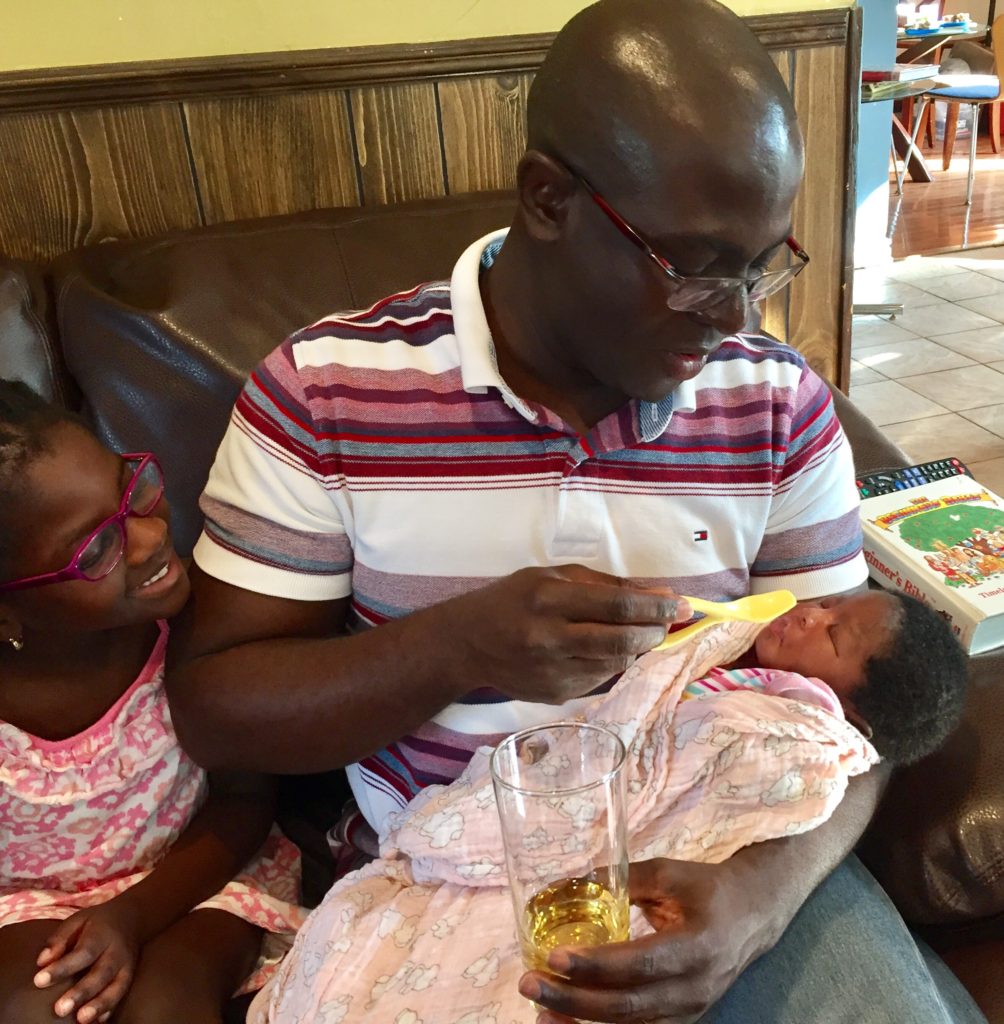
Performing an Akan tradition where you symbolically ask the child to learn to distinguish between ‘water’ and ‘juice,’ ‘good and evil,’ ‘black and white,’ right and wrong.’
Nana Ahomka
Nana Ahomka Asamoabea Perbi
And a voice came from heaven: “You are my Son, whom I love; with you I am well pleased.” (Mark 1:11)
And Jesus grew in wisdom and stature, and in favour with God and man. (Luke 2:52)
 I woke up early morning on Monday, 6th February with ‘Adenyinaamu’ on his heart; yes, that this child we were carrying will be holistic and have “God in my everything,” “God over everything.”
I woke up early morning on Monday, 6th February with ‘Adenyinaamu’ on his heart; yes, that this child we were carrying will be holistic and have “God in my everything,” “God over everything.”
Considering the challenge of name pronunciation in the global context we kept the idea of holistic, wholesome, bringing God pleasure in every area of her life and gave her the simpler version Ahomka, Nana Ahomka–God’s pleasure (delight). This emphasizes both our prayer that she will live a wholesome, holistic life, all aspects pleasing to the LORD, as well as that she will bring delight to us and everyone she ever encounters.
The middle name, Asamoabea, is that of my beloved paternal grandmother who was quite the prayer warrior and story-teller! And boy could she dance with delight to everyone’s delight!
Our prayer:
Let love and faithfulness never leave you; bind them around your neck, write them on the tablet of your heart. So you will find favour and good repute In the sight of God and man. Trust in the LORD with all your heart and lean not on your own understanding; in all your ways submit to him, and he will make your paths straight. (Proverbs 3:3-6)
From ‘Fantastic Four’ to ‘Fabulous Five’

Our children with their prophetic names (from left to right)…
- Nana Agyina (God’s Purpose) | Boy, 9 years
- Nana Adwenepa (God’s Paradigms) | Boy, 5 years
- Nana Ahotew (God’s Purity) | Girl, 2 years
- Nana Ashede (God’s Principles) | Girl, 7 years
- Nana Ahomka (God’s Pleasure) | Girl, 0 years (or 1 year, the Chinese way 🙂
Emotionally Constipated
In medical school this wasn’t one of the diagnoses I was taught I could make but on the other side of the doctor’s desk, this may be an even more dire diagnosis than a clogged gut.
MAINLY MEN; BUT NOT ONLY
Last Sunday, in a suburban church in Montreal, this was the summary of the middle-aged chap who shared his life-long struggle of dealing with his past: “I don’t do emotions.” Me too! Well, no more.
In many world cultures, that is the manly thing to do; it is macho. Some women try it too 🙂 In fact, in my own language, there is a saying that, “Obarima nnsu;” to wit, real men don’t cry. Even as a little boy growing up in Scripture Union circles in Accra, I always knew there was something wrong with that statement because I considered no one more manly that Jesus Christ yet he wept. Ever since then, I haven’t had a problem with weeping (you probably have seen me weep!) but errm… not done so well with a whole range of other emotions.
FACE, FIGHT OR FLIGHT?
I still remember my rather unemotional response to one of my staff’s emotional appeal when he said, “I feel…” My immediate response was, “Good thing that it’s only a feeling; but what do you think?!…” I don’t need to tell you that conversation didn’t go very well after that.
The Lord has been particularly convicting me of my emotional immaturity since the beginning of this year. Prior to that, I was the kind of leader Ruth Haley Barton would describe in Parker Palmer’s words as having risen to leadership based on “extroversion, which means they have a tendency to ignore what is going on inside themselves. These leaders rise to power by operating very competently and effectively in the external world, sometimes at the cost of internal awareness… but the link between leadership and spirituality calls us to reexamine that denial of the inner life.” (Barton 2012, 44, emphasis mine).
In fact, I might never have picked up a book like Peter Scazzero’s The Emotionally Healthy Leader because hitherto the word ‘emotional(ly)’ anywhere put me off. But for Dallas Willard and Scazzero, I had never thought of my emotional life as specifically needing to be discipled! I certainly did not have the theological, mental or practical framework for that!
Scazzero astounded me and totally destroyed my perception of what spiritual formation consists of when he emphatically stated, “it is not possible to be spiritually mature while remaining emotionally immature!” (Scazzero 2015, 17). Gordon Smith drove the dagger deeper into my heart when he confirmed that “what is happening to us emotionally is not secondary to our spiritual experience, but may actually be—pun intended—the heart of the matter” (Smith 2014, 27).
And whole squadrons of the ancients agree, that “few things are so crucial to our growth in faith, hope and love as our capacity to be alert to the emotional contours of our lives” (28). Smith then adds another dimension, that not only are my emotions an area to be discipled for sure but they are also indicative, a dashboard sign, in the sense that “the depth of our hearts reflects the depth of our emotional lives; nothing so captures the inner recesses of our beings as what is happening to us emotionally” (28). In fact, St. Ingatius exhorts that we check for feelings of consolation and desolation in the Examen.
For all those as emotionally constipated as I used to be, we need to decide now: are we going to face our emotions, fight them or flee?
DENIAL, DISTORTION & DISENGAGEMENT
I could give myriad reasons (in addition to the couple above) why being emotionally aware and emotionally expressive in a healthy way is non-negotiable in life and leadership but just take a moment to consider why Dan Allender and Tremper Longman, in The Cry of the Soul, find this paramount:
“Ignoring our emotions is turning our back on reality; listening to our emotions ushers us into reality. And reality is where we meet God…. Emotions are the language of the soul. They are the cry that gives the heart a voice…. However, we often turn a deaf ear—through emotional denial, distortion, or disengagement. We strain out anything disturbing in order to gain tenuous control of our inner world. We are frightened and ashamed of what leaks into our consciousness. In neglecting our intense emotions, we are false to ourselves and lose a wonderful opportunity to know God. We forget that change comes through brutal honesty and vulnerability before God.”
THE DOCTOR’S DOCTOR
So where do we go from here? Personally, I have not only devoured Scazzero’s The Emotionally Healthy Leader but also led my entire ISMC national leadership team and still taking the fourteen country CEOs of The HuD Group through it chapter by chapter. At ISMC’s recent biennial national staff conference in Montreal, there was a daily ‘Emotionally Healthy’ segment (spirituality, relationship, leadership). In fact, the picture you see above was taken in May 2017, when Anyele and I had the privilege of joining the authors, Peter and Geri Scazzero, at their conference in New York (together with the CEO of The HuD Group Canada and his wife). I’m still learning and eagerly walking with a few others through Emotionally Healthy Spirituality over the next few months.
Having gleaned from Smith that “the genius of good [spiritual] direction is that we probe together, director and directee, and attend to the emotional wake that is left by the myriad of experiences we have had or are having” I have begun a search for a well-fitting spiritual director, apart from the amazing mentors, accountability partners, counselors and coaches I have in my life. And a good practice, encouraged by my wife, has been to “name my feelings,” because “what you name you can tame.”
How about you? Could you too be suffering from emotional constipation? What may God be calling you to do about it? Take a personal Emotional Healthy Spirituality assessment here. Don’t be afraid or ashamed to admit your state of emotional immaturity or bankruptcy, because hey, “God blesses those who are poor and realize their need for him, for the Kingdom of Heaven is theirs.”
Other Works Cited
Barton, Ruth Haley. 2012. Pursuing God’s Will Together. Downers Grove, IL: IVP.
Scazzero, Peter. 2014. Emotionally Healthy Spirituality Day by Day. Grand Rapids, MI: Zondervan.
Scazzero, Peter. 2015. The Emotionally Healthy Leader. Grand Rapids, MI: Zondervan.
Willard, Dallas, 2002. Renovation of the Heart: Putting on the Character of Christ. Colorado Springs, CO: NavPress.
Leadership is Likadis Likadat
The idea of ‘leadership ellipse’ is perhaps the most striking leadership concept I’ve come across most recently. How in the world is one supposed to ‘balance’ the inner spiritual life and the outer demands of leadership and tame tensions like being in the world but not of it, faithfulness and fruitfulness, impact and profit, being and doing… and remain sane?!
LIKAWHAT?
So after paying lots of money to take a course in Mentoring these were among the final words of admonishing (from Dietrich Bonheoffer): “Let him who cannot be alone beware of community” and “Let him who is not in community beware of being alone.” Huh? Now, which is which? Give me back my money! LOL!
Welcome to the business of life and leadership–paradox and ambiguity. To live in one extreme or the other is the easy option (any ‘fool’ can, excuse me to say); but to be able to hold two extremes in balance in your head, heart and in life is the real deal and few are able to handle this well. Yet that is an essential ingredient for success. In fact, sometimes these apparently contrasting dimensions of life are not even to be balanced per se but to be continually held in tension. To be comfortable with the uncomfortable tension and do well therein, that is the issue!
Pursuance of a life and leadership of integrity is living as activists and contemplatives, following and leading, managing our outward leadership responsibility and inward spiritual reality as well as having external organizational success principles and internal spiritual disciplines jiving. Robert Fryling, in his insightful work, The Leadership Ellipse, brings these to the fore and challenges leaders to integrate our lives in the sense of one’s outer and inner worlds being one, synchronous. Fryling’s metaphor to describe a life holding these foci and tensions together is the ellipse.
CALL IT WHAT YOU MAY—BUT IT’S THERE!
Why does Fryling use the ellipse (an elongated circle) metaphor and how useful is that in all the cross-cultural contexts in which I serve? I ask because there are too many times when one is caught off guard trying to use a metaphor (like ‘snowball effect’) that does not cross cultures well. I don’t want a situation of trying to relate a concept that I appreciate so well from a Western context but struggle to transmit.
Fryling’s love for, and deep understanding of, geometry led him to employ this amazing metaphor because an ellipse “is defined by two distinctly different focal points that are of equal importance. One point is not inferior to the other, and both are needed if there is to be an ellipse.”
For Fryling, “one focal point is our inner spiritual life, our longings, our affections and our allegiance to God. The other focal point is our outer world and organizational life, what we do and how we do it. Together these focal points define an ellipse that circumscribes our true spiritual leadership. It represents the dynamic tension between our soul and our actions, and gives us a mental image for personal, spiritual and professional integrity in who we are and how we lead.”
While almost every schooled person, irrespective of culture, may ‘get it,’ I’m glad he uses other metaphors which everyone can appreciate, like form and freedom, the fixed bone structure and flexible muscles of the human body plus basic theology of the full humanity and full divinity of Jesus Christ.
PREDICTOR OF LEADERSHIP SUCCESS
This sense of dissonance between a leader’s outer world and inner world is normal. “We live with paradoxes all of the time,” says Fryling; even Jesus the ultimate leader wasn’t spared. His prayer for his followers was “to live in the world without at the same time being of the world.” In many ministries, like mine, there is a constant struggle between being faithful and being fruitful.
Those are leadership ellipses right there when “waiting on God to move or to shift something inside me while at the same time still needing to lead in the public arena” (Ruth Haley Barton). In fact, Barton goes on to mention how “we might notice tension between what the spiritual life requires and what it takes to be (or at least appear!) successful in the current cultural milieu. On our good days, we might experience these tensions as a place of paradox where creative solutions might be found, but on other days they feel like polarities that are impossible to manage.”
In rapid fire, she continues: “…there is real tension between what the human soul needs in order to be truly well and what life in leadership encourages and even requires. There is the tension between being and doing, community and cause, truth-telling and putting the right spin on things. There is the tension between the time it takes to love people and the need for expediency. There is the tension between the need for measurable goals and the difficulty of measuring that which is ultimately immeasurable by anyone but God himself.
“There is the tension between the need for organizational hierarchy with all the power dynamics this creates and the mutuality and interdependence of life in community to which we as Christians are called. There is the tension between knowing how to “work the system” and entering into trustworthy relationships characterized by trust and a commitment to one another’s well-being. There is the tension between the need for an easy discipleship process through which we can efficiently herd lots of people and the patient, plodding and ultimately mysterious nature of the spiritual transformation process. And there is the challenge of knowing how to speak of these things in fruitful ways in the very inside places of power without becoming polarized in our relationships with one another.” Phew!
INTEGRITY AGAIN!
Living in the tension of this and that, yin and yang, and learning to be comfortable in the space and place, while taming the tension has a lot to do with living a life of integrity. Remember, integritas is about being one whole (integers); not fractionated. And it’s hard.
My seminary president put it this way in his book, Called: “Authentic discipleship delivers us from a compartmentalized life. Rather than having a life with segments and partitions—divisions between sacred and secular, personal and public, image and reality—we’re called to one whole and integrated life. It has to be said, of course, that we usually don’t want such a life and prefer the separate compartments. Such divisions provide room for our conflicting and contradictory instincts and desires. This is how we try to manage our several selves. It’s the hedge-your-bets approach to life, highly appealing but ultimately disappointing. It’s like approaching life as a series of snacks rather than committing ourselves to a full meal” (Mark Labberton).
GAME ON
Fryling, Barton, Labberton, Scazzero and others have assured me that the paradoxes and tensions that I sense as a leader are not only real but normal…and can be successfully grappled with. I’m more willing to embrace elliptical leadership. How about you?
After studying several leaders I have come to the conclusion that the degree to which one is able to be comfortable with and live, love and lead well in the tension of this and that, yin and yang, determines their ultimate leadership success or otherwise. From my little experience and research, the best leaders in the world are those who are not only able to get comfortable with being uncomfortable living in such tensions but mastered the art of dexterously handling both well.
As long as we are alive we will live with ambiguity and grapple with paradox. Part of our discipleship—learning to live and lead like Jesus—is to master how he lived his elliptical leadership life as the God-Man, knowing it can be done; and it must be done.
Works Cited
Barton, Ruth Haley. 2008. Strengthening the Soul of your Leadership. Downers Grove, IL: InterVarsity Press.
Fryling, Robert. 2010. The Leadership Ellipse: Shaping How We Lead by Who We Are. Downers Grove, IL: InterVarsity Press.
Labberton, Mark. 2014. Called: the Crises and Promise of Following Jesus Today. Downers Grove, IL: InterVarsity Press.
I DON’T CARE HOW GOOD YOU ARE (#2)~If you’re not a ‘walkie-talkie’
When “what people say, what people do, and what they say they do are entirely different things” (Margaret Mead) we’re in real trouble. On this Father’s Day, I want to honour the one person, of all the leaders I know in this world, who I can vouch for as walks his talk: my own father.
WHO SAID WHAT?
In my head I was debating whether or not to continue this “I Don’t Care How Good You Are” series on character, ethics, morality and integrity when I chanced upon an quote from the newly-launched book of a dear family friend (actually my Dad’s Best Man nearly 40 years ago!): “What a person truly believes isn’t what they think or say, it’s what they do” —Queenie in Lark Rise to Candleford. That was it; that was my confirmation to do this piece. So let’s roll with another in this character series. But this one is very special because it is dedicated to my own biological father.
In many places and pieces of literature, even in Scripture, the life we lead is often referred to as our “walk.” Let’s examine what it means when our talk (what we say we believe in, who say we are or what say we do) doesn’t match our walk.
WHY DAD?
If there ever was a man of integrity I could vouch for it is my father: Reindorf Kofi Baah Perbi. In fact, even way back in the 1980s during his days as Chief Accountant at the then Social Security Bank (now SG-SSB), when his signature was forged and monies stolen it was his integrity that saved him. Everyone vouched for him: “Chief would never do such a thing,” the convincingly told the authorities.
Those were the heady days of revolution and military rule in Ghana so he had even received a pre-judicial slap or two already when he was picked up by soldiers and sent to Gonja Barracks. After several weeks of tribunal hearings (and I remember us going to fetch him from tribunal hearings after we had been picked up from Ridge Church School), eventually, the perpetrators were found, tried and shot via firing squad. It was no joke. One of them, I believe, is still on the run—he must be still running now or dead from running.
When Dad retired as Ghana’s Deputy Senior Partner of KPMG (one of the ‘big four’ accounting firms in the world) in April 2015, it was humbling to hear how many of his accounting, management consulting, and audit colleagues honoured him for this one thing: integrity. I sat at those banquets (yes, there was more than one! Lol!) soliloquizing, “I want that. When all is said and done, that’s the kind of man I want to be!”
LAYING IT DOWN
Contrast Dad with Kenneth Lay, who was the CEO of Enron. He played a leading role in the corruption scandal that led to the downfall of the Enron Corporation. Unfortunately, Lay and Enron have become synonymous with corporate abuse and accounting fraud since the scandal broke in 2001.
In an interview with the indefatigable Larry King of CNN, after pleading not guilty to criminal counts having to do with his leadership at Enron, these were Mr. Lay’s words: “I lived my life in a certain way to make sure that I would never violate any law – certainly not criminal laws – and have always maintained that most important to me was my integrity, my character, and my values.”
Something doesn’t add up here because in 2004, Lay was indicted on 11 counts of securities fraud and related charges. He was found guilty on May 25, 2006, of 10 counts against him which meant he could face anything from 20 to 30 years in jail. However, only three-and-a-half months before sentencing, Kenneth Lay died of a heart attack while vacationing.
Same thing with Bernie Madoff who founded a Wall Street firm in 1960 of which he was chairman until his arrest on December 11, 2008. He would soon plead guilty to 11 felonies, having turned his wealth management business into a massive Ponzi scheme with almost $65 billion of fabricated gains. Yet hear his defense attorney, Daniel Horowitz: “…Bernard (Bernie) Madoff is a longstanding leader in the financial services industry. He will fight to get through this unfortunate set of events. He is a man of integrity.” Madoff is currently serving a life term in a federal prison for his kind of integrity.
STRANGE ANIMAL
Did you not just read Mr. Lay saying integrity was most important to him? In my short life, perhaps there is no word I’ve found more misunderstood and misappropriated than the word, “INTEGRITY.”
Integrity comes from the Latin root integritas, which means entire or whole. It’s the word from which we get “integer” in Mathematics. It may help to remember that integers are positive or negative whole numbers. To have integrity, therefore, means you are whole, you are one: your private and public lives are one; your charisma and character jive; what you say and what you do are in sync.
Extending the Math metaphor, a life of no integrity on the other hand is fractionated—instead of integers, we have fractions. That is when the Yaw you see behind the pulpit is different from the Yaw you see at the pub; and different from the Yaw you experienced on vacation in Panama; who is also very different from the Yaw at home… Sadly, not too long ago even a pastor whose public image did not match who he truly is was exposed on CNN.
THE ONLY TIME I BELIEVE IN ATHEISTS
When it comes to integrity, I dare say that many non-religious people, even atheists, have more integrity than many so-called religious people. This is what I mean. If Steve says, “I lie, I deceive, I steal.” Steve has low morality. When Yaw says, “I abhor lying, I don’t deceive, I never steal,” he has high morality.
BUT, if Yaw goes on lying, deceiving and stealing then Yaw is not a person of integrity. He doesn’t walk his talk. However, if Steve goes ahead to lie, deceive and steal, although he has low morality he actually is a person of integrity (albeit in a very twisted way) because he walks his talk. He said he will do these and he does.
The extent to which your walk and talk jive is the extent to which you are a person of integrity.
WANTED: WALKIE-TALKIES
I’m not perfect; none of us is. Many times I haven’t kept my word—including keeping appointments. It isn’t a perfect world either; stuff happens that alter our good intentions. One thing I do, however, is strive to call or email and apologize profusely, letting the person know I had every intention to keep my word but now very sorry I’m unable. The Psalmist David, takes this even a notch further saying a person of integrity is one who keeps his/her word, even when it hurts.
Integrity doesn’t mean you are perfect; but it sure means that when you ‘mess up’ you quickly and truly ‘fess up’. That is what made God call David, albeit an adulterer and a murder, a man of integrity (Psalm 78:72), even “a man after my own heart.”
I have observed with shock how people say things they don’t mean and mean what they don’t say; and say things they have no intention of ever acting on. Time wouldn’t allow me to go into my private disappointments in the lives of public speakers whose private lives don’t measure up to their public statements or images. And they have no qualms about it. The Lays and Madoffs did not just wake up one day and find themselves in court—a little slip, a little lie, and slowly slowly but surely surely down a slippery slope we go.
It doesn’t matter how good you are at what you do (skill, talent, gifting). If consistently what you say does not match what you do (walk), I shan’t hire you. Or if I do by mistake or because I want to give you a chance, you’re already on the firing line—it’s just a matter of time, if nothing changes. The world has billions of smart phones; what we need now is truly smart people. We need more walkie-talkies—people who walk their talk and talk their walk.
Thanks Dad, for showing me the way. Happy Father’s Day!




